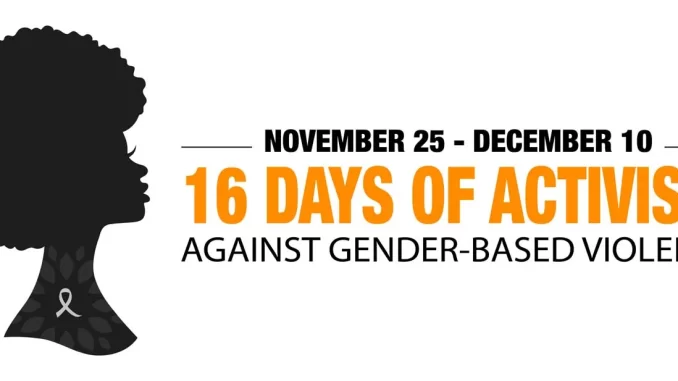
As Malawi joins the global community in observing the 16 Days of Activism Against Gender-Based Violence, the nation rallies under the compelling theme “Invest to Prevent Violence Against Women and Girls.”
This campaign on the Elimination of Violence Against Women and Girls seeks to ignite a collective commitment to proactively address and eliminate gender-based violence through strategic investment, education, and community empowerment.
The 16 Days of Activism (November 25 – December 10) campaign is a globally recognised initiative aimed at raising awareness and taking action to end violence against women and girls. Malawi, with its rich cultural diversity and vibrant communities, is harnessing the momentum of this international movement to drive local change and create a society free from the scourge of gender-based violence.
Under this theme, “Invest to Prevent Violence Against Women and Girls,” the focus is on channelling resources into proactive measures that address the root causes of violence. This includes investing in education programmes that promote gender equality, community empowerment initiatives, and support systems that provide a safety net for those at risk.
The Centre for Solutions Journalism, as a grouping that strives to seek solutions to issues, feels duty-bound to amplify this year’s global theme, which is calling for governments, civil society organisations, and other stakeholders to invest to prevent violence against women and girls.
We recognise the critical importance of mobilising communities, civil society, government agencies, and the private sector to work collaboratively towards eradicating gender-based violence. Through strategic investments in prevention, the aim is to create lasting change and foster an environment where every woman and girl can live free from violence and fear.
We feel it is high time emphasis is put on the need for funding prevention strategies to proactively stop gender-based violence. We urge the government and other stakeholders to increase investments in stopping violence from happening in the first place.
We feel every effort invested in preventing violence against women is a step towards a safer, more equal, and prosperous country.
CSJ hopes that efforts have been made to engage the public in meaningful conversations about the impact of gender-based violence and the role each individual will play in preventing it.
It’s high time we changed the story, challenged misogyny and violence, and made sure women were heard. Women and girls everywhere should be able to access the help they need, when they need it, so we can end violence once and for all.
As we are aware, violence against women and girls remains the most pervasive human rights violation around the world. Some 736 million women—almost one in three—have been subjected to physical and/or sexual intimate partner violence, non-partner sexual violence, or both at least once in their lives.
For Malawi, the figures are just as alarming. The Malawi Demographic and Health Survey found that in 2020, 34 in every 100 women aged 15–49 will have experienced physical violence, 14 women in every 100 will have experienced sexual violence, and 23 women in every 100 will have experienced emotional violence within the 12-month period prior to the survey.
Malawi, just like many countries, is far from eradicating domestic violence, and only a quarter of countries have systems to track and make budgetary allocations for gender equality and women’s empowerment.
Despite the scale of the problem and these worrying trends, Malawi has a long way to go in making financial commitments to violence prevention.
We also want to remind the stakeholders that in our quest to fight gender-based violence, we should not forget those living with disabilities, adolescent girls, and older women, as they also often face even greater difficulty in having their voices heard and accessing support.
As we embark on this crucial journey, we call upon all stakeholders, from government bodies to grassroots organisations, businesses, and citizens, to actively participate in and support the 16 Days of Activism. Together, let us invest in a future where violence against women and girls is a thing of the past and where our collective efforts create a safer, more inclusive society for all.
